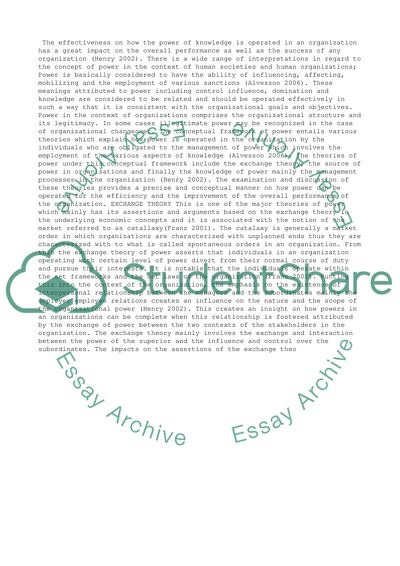Power and organizations: Knowledge is power Essay. Retrieved from https://studentshare.org/management/1400808-power-and-organizations-knowledge-is-power
Power and Organizations: Knowledge Is Power Essay. https://studentshare.org/management/1400808-power-and-organizations-knowledge-is-power.


